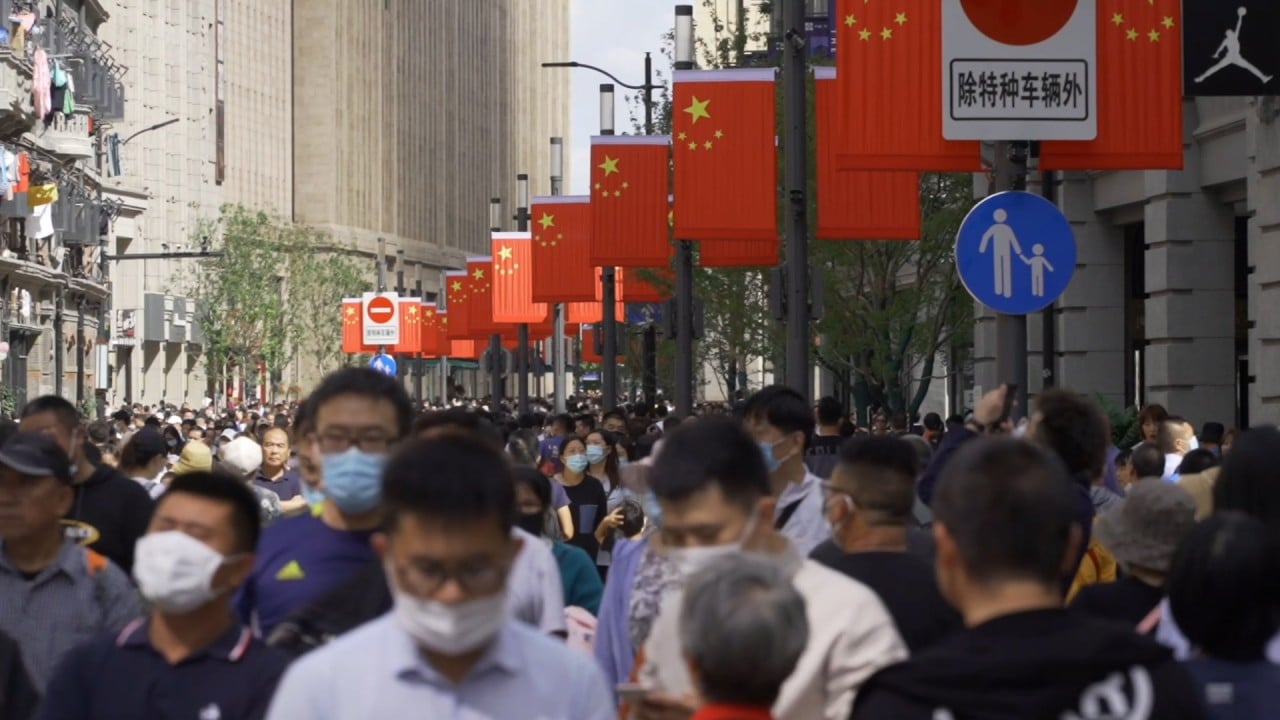
What Europe’s coronavirus woes mean for the yuan-euro exchange rate
- European governments are still struggling to suppress a Covid-19 pandemic that Beijing now seems to have contained. The policies of the two central banks are also a study in contrasts
Traders who see further gains for the yuan on foreign exchanges don’t need to focus exclusively on the level of the renminbi versus the US dollar. The euro-yuan exchange rate is a case in point. There is every possibility the renminbi could strengthen further against the euro.
Admittedly, data released on October 30 by the European Union’s statistics office, Eurostat, showed that gross domestic product in the 19-country euro zone had expanded by 12.7 per cent quarter on quarter in the July-September period following a second-quarter slump of 11.8 per cent.
France, Italy and Spain posted quarterly GDP growth of between 16.1 and 18.2 per cent while Germany, the largest economy in the euro zone, registered an 8.2 per cent expansion quarter on quarter, although Berlin still expects that as a consequence of the pandemic, the German economy will have contracted by 5.5 per cent over 2020.

04:06
Stepped-up Covid-19 restrictions ‘absolutely necessary’ as Europe enters new wave ahead of winter
For example, Germany has gone into a partial lockdown that will currently last until November 30. “November will be a month of truth. The increasing numbers of infections are forcing us to take tough countermeasures in order to break the second wave,” said German Finance Minister Olaf Scholz last week.
France, too, has entered a partial lockdown that, at the moment, will continue until December 1. While French President Emmanuel Macron stressed last week that public services and factories would stay open, and the French economy “must not stop or collapse”, he also said France must now “brutally apply the brakes” to avoid being “submerged by the acceleration of the epidemic”. Spain, meanwhile, has declared a state of emergency that is set to last until May 9, 2021.

China steps up offering of yuan assets as haven against volatile world
With the coronavirus still wreaking havoc in the euro zone, the European Central Bank has understandably sought to be as supportive as possible. ECB monetary policy remains ultra-accommodative. An already negative benchmark interest rate has been bolstered by large-scale asset purchases but even easier policy is being considered.
“The euro area economic recovery is losing momentum more rapidly than expected, after a strong, yet partial and uneven, rebound in economic activity over the summer months,” ECB president Christine Lagarde admitted on October 29, noting that all of the ECB Governing Council agreed “that it was necessary to take action and therefore to recalibrate our instruments” at their next policy meeting, scheduled for December 10.

01:47
China GDP: economy grew by 4.9 per cent in third quarter of 2020
In fact, the PBOC has taken a more nuanced approach to monetary policy easing throughout the pandemic. “Implementing a normal monetary policy, [namely] a positive interest rate and a rising yield curve, is good to provide incentives for market entities and promote sustainable development of the economy and society,” PBOC governor Yi Gang wrote in an article published by China Finance magazine on October 10.
“We need to maintain reasonable liquidity, money supply and aggregated financing, but must say no to a flood of money at the same time. Instead, we should target growth near potential productivity and avoid economic fluctuations,” Yi said.
A pandemic-stricken euro-zone economy is struggling, and the ECB’s already ultra-accommodative policy settings are set to become even looser. China’s economy is showing signs of recovery, and the PBOC is extolling the virtues of a positive interest rate and a rising yield curve.
The currency markets may well conclude that the yuan should strengthen further against the euro.
Neal Kimberley is a commentator on macroeconomics and financial markets

